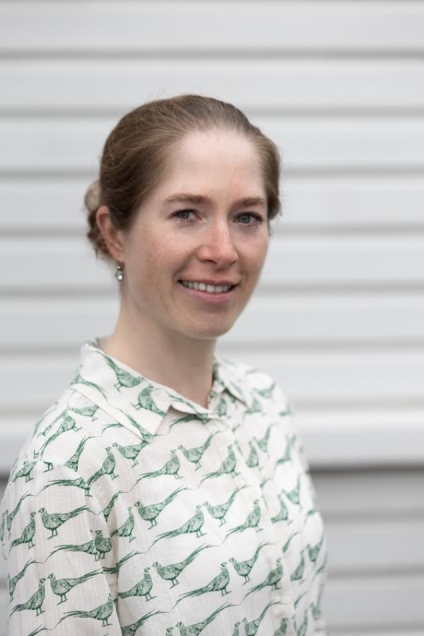About SRNT-E
Current members of the SRNT-E Board
Amanda Farley
President
Associate Professor in Public Health and Epidemiology, University of Birmingham
Dr Amanda Farley is Associate Professor of Public Health and Epidemiology at the University of Birmingham in the UK and has been working as a researcher within the field of nicotine and tobacco for over 20 years. During her career she has worked on and led a number of clinical trials to test interventions for smoking cessation both in the UK and internationally. She has also conducted epidemiological work and systematic reviews to quantify the effect of smoking and smoking cessation on physical and mental health conditions and on weight gain after quitting smoking. Beyond her research work, Amanda teaches epidemiological research methods on the master’s in public health and undergraduate medicine degree and delivers lectures on smoking, smoking cessation and vaping on accredited healthcare professional courses at the University of Birmingham. Amanda is also currently an associate editor of the journal addiction, is a member of the research leadership team for the International Primary Care Respiratory Group (IPCRG) and is a steering group member of the Cancer Research UK (CRUK) electronic cigarette research forum.
Sarah Jackson
Past-President
Professorial Research Fellow in the UCL Alcohol and Tobacco Research Group, UK
Prof Sarah Jackson is a Professorial Research Fellow in the UCL Alcohol and Tobacco Research Group. Her work focuses on monitoring population trends in smoking, vaping, and alcohol use and evaluating the effectiveness of smoking cessation aids, interventions, and policies at the individual and population level. To do this, she makes use of large, population-based datasets such as the Smoking and Alcohol Toolkit Study. She has authored over 200 peer-reviewed publications relating to nicotine and tobacco, alcohol, and other health-related issues such as obesity and cancer. She has also contributed to influential reports on smoking, vaping, and health by the Royal College of Physicians' Tobacco Advisory Group. The contribution of her work has been recognised by several awards, including the Society for the Study of Addiction (SSA)'s Impact Prize and early career awards from the SSA (Fred Yates Prize) and UK Society for Behavioural Medicine.
Melanie Böckmann
President-elect
Head of the Global Health Department at the Institute for Public Health and Nursing Research at the University of Bremen
Melanie Böckmann is professor of Global Health at the University of Bremen in Germany. Her tobacco-focused research interests lie with implementation research, smokeless tobacco, and tobacco use in tuberculosis patients, predominantly in South Asia and using qualitative methods. She has previously served as SRNT University Innovations Director, volunteered with the SRNT Health Equity Network, and is collaborating with colleagues in the UK, Nepal, Bangladesh, Pakistan and Japan.
Stephanie Klosterhalfen
Secretary
Researcher at the Institute of General Practice (ifam), Medical Faculty and University Hospital Düsseldorf, Heinrich Heine University Düsseldorf, Germany.
Stephanie Klosterhalfen is a post-doctoral researcher at the Institute of General Practice at Heinrich Heine University Düsseldorf. She holds an M.Sc. in Health Economics and a Doctorate in Public Health. With several years of experience in nicotine and tobacco research, she coordinates the German Study on Tobacco Use (DEBRA), a nationwide survey on smoking behaviour in Germany. Her research focuses particularly on shisha consumption, with a special interest in its use among adolescents and young adults.
Catherine Kimber
Treasurer
Senior Lecturer in Psychology and researcher, College of Health and Life Science, London South Bank University, UK
Dr Catherine Kimber is a senior lecturer and lead of the Nicotine, Tobacco and Vaping research group at London South Bank University (LSBU), London, UK. She is an active researcher with over 10 years’ experience of working in the tobacco control and a track record of publishing high-quality peer-reviewed outputs. Her work includes experimental work to measure puffing topographies, nicotine delivery and absorption, public health messaging on harms related to vaping, and optimising smoking cessation interventions which include e-cigarettes. Her early work focused on exploring the theory of nicotine-titration and compensatory behaviours in vapers and suggested that when switching to lower nicotine concentrations, vapers will change their puffing to compensate for the drop in nicotine thereby potentially increasing their exposure to toxicants. Findings from this research programme were replicated in later studies (in-lab and in a real-world settings), contributing to new body of knowledge around compensatory behaviours in vapers, and furthering the understanding of the health and cost implications of limiting nicotine concentrations in e-liquid. Other areas of her work have focused on health warning labels for e-cigarette product packages, i.e. designing alternative labels that contextualize vaping’s risks to promote harm reduction and correct misperceptions. Her most recent work has focused on developing and optimising digital smoking cessation interventions that incorporate e-cigarettes. Catherine has secured and delivered several funded projects as Principal Investigator and lead researcher, including funding from CRUK and the Medical Research Council (MRC).
Floor van den Brand
Communications Officer
Assistant professor at the Department of Family Medicine, CAPHRI, Maastricht University, The Netherlands
Floor van den Brand is assistant professor at the Department of Family Medicine at Maastricht University. Her research interest lies in behavioral and policy interventions for stimulating smoking cessation in individuals with a lower socioeconomic position. She conducts research on implementing smoking cessation group trainings with financial incentives targeting people with a lower socioeconomic position and is studying the effects of a tobacco sales ban in supermarkets on youth and adults from disadvantaged neighborhoods.
Nicola Lindson
Member Delegate for Europe
Associate Professor at the Nuffield Department of Primary Care Health Sciences, University of Oxford, Oxford, United Kingdom
Nicola Lindson is the lead of the Oxford Tobacco Addiction Group in the Centre for Evidence Based Medicine, Nuffield Department of Primary Care Health Sciences (NDPCHS), University of Oxford. She received her PhD in Behavioural Medicine from the University of Birmingham in 2012. Her research mainly focuses on the efficacy and safety of treatment for tobacco smoking, in particular in population groups with higher smoking prevalence rates, such as people experiencing financial difficulty, living in social housing and experiencing serious mental health issues. She has particular expertise in systematic reviewing and randomised controlled trials. She also contributes to teaching both the undergraduate and postgraduate curriculum at the University of Oxford, and is a Fellow of Kellogg College, University of Oxford.
Felix Naughton
Honorary Secretary
Professor of Health Psychology within the School of Health Sciences, University of East Anglia, Norwich, United Kingdom
Felix is a Professor of Health Psychology within the School of Health Sciences, University of East Anglia, and co-lead of the UEA Addiction Research Group. He has a key research interest in the development and evaluation of mobile phone interventions to promote and support health behaviour change (mHealth), particularly smoking cessation.






